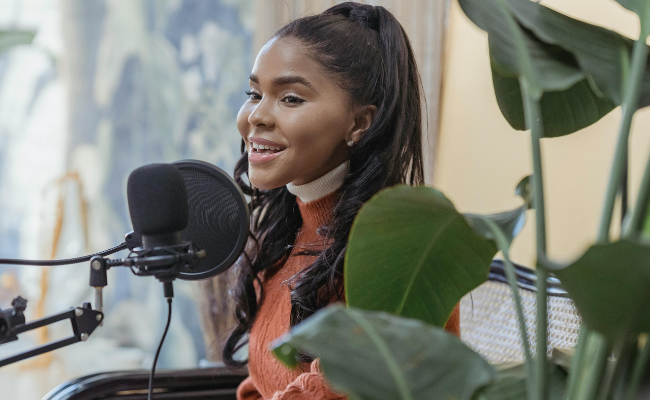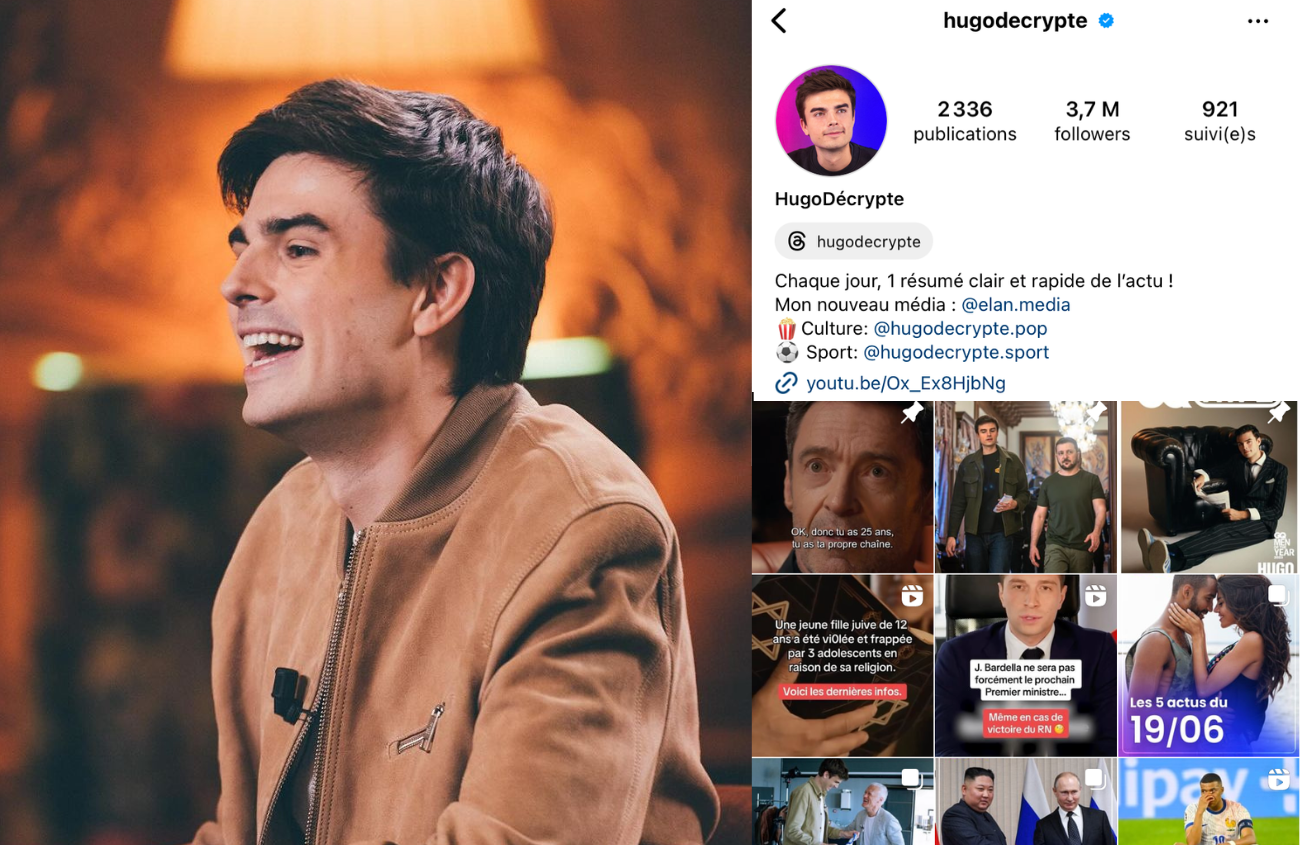Traditionally, information was disseminated mainly through television, radio, and print media. The rise of social media has transformed this landscape, creating a new type of information distributors: influencers.
Their fields of expertise are expanding, revealing real influencers specializing in information on social networks. These influencers use platforms like Instagram, YouTube, and TikTok to share news, analyses, and real-time reports with vast audiences. By leveraging all the benefits of social media, they are redefining the boundaries of information distribution and creating competition with traditional media professionals. This article delves into the revolutionary role influencers play in the dissemination of information.
Social networks and influencers as a new source of information
Getting informed through social media has become widespread in our modern society. TikTok, in particular, not only rivals Google as a search engine but has also emerged as one of the most popular channels for accessing information among both the youth and adults. This trend is driven by the transformation that social media brings to information access, offering instant dissemination, interactive, personalized, and diverse content. Nowadays, influencers and celebrities are seen by the general public as more reliable sources of information than traditional journalists. Thanks to their large audience and their ability to directly engage with their followers, they have transformed how information is consumed and shared.
They use innovative and engaging content formats such as short videos, infographics, and podcasts, along with direct engagement with their audience, to make information more interesting and accessible to a public interested in news across various fields: sports, entertainment, current affairs, culture, technology, and beyond. Regardless of their primary content focus, they provide a personal perspective that is often easier to understand than traditional media. Their influence extends far beyond mere product recommendations, also addressing social, political, and cultural topics.
Difference between media and influencers
- Education and expertise :
Traditional media : Journalists and reporters follow rigorous protocols to fact-check and ensure the accuracy and objectivity of the information they disseminate.
Influencers : They come from diverse backgrounds and lack formal journalism training. Their expertise might be more subjective, rooted in personal experience or passion.
- Speed of distribution :
Traditional media : Despite their rapid distribution of information, they frequently invest additional time in verifying the accuracy of news before it is published.
Influencers : They can instantly share information with their audience, enabling very fast news sharing.
- Format and content :
Traditional media : Their content tends to be more formal and structured, including news articles, TV programs, and reports that have a wide, national reach.
Influencers : Their content is typically more interactive and visually appealing, featuring short videos, stories, podcasts, and posts, often reaching a viral audience.
- Responsibility and regulation :
Traditional media : They are subject to strict regulations and can be held legally accountable for spreading false information.
Influencers : They operate within a less strict regulatory framework, although ongoing efforts are being made to strengthen this aspect.
Challenges and disinformation
The evolution of the role of social media and influencers in broadcasting information presents a major challenge, particularly concerning misinformation. This misinformation takes various forms, including fake news, conspiracy theories, and misleading information on social platforms, exacerbated by advancements in AI. It influences public opinion, erodes trust in traditional media, and poses a threat to democratic principles.
Regulation and self-regulation are becoming increasingly vital to ensure the credibility of shared information and to ensure that influencers uphold ethical standards. For example, the EU introduced a Code of Practice against disinformation in 2018, which was reinforced in 2022. This code, embraced by various digital entities, obliges them to take measures against disinformation, including preventing fake news producers from profiting through advertisements.
Top information influencer
Hugo Travers, also known as “Hugo Décrypte,” is both a french content creator and journalist. He collaborates closely with other influencers and participates in various video concepts and vlogs on YouTube. He gained fame for his skill in breaking down current events and making them accessible to young audiences through YouTube videos, as well as engaging posts on Instagram and TikTok. His content covers diverse topics ranging from politics to culture, economics, and society.
His influence in the realm of information is such that he played a crucial role during the French presidential elections, interviewing several political figures to provide a platform for dialogue between policymakers and young citizens while maintaining complete neutrality. Today, he collaborates with television channels to attract a younger audience to their programs while continuing to produce informative content on social media. He also interviews a lot of celebrities such as Zendaya, Billie eilish, or Christopher Nolan.
Hugo Travers has become a vital figure in simplifying news in France leveraging both journalism and modern technologies to capture the attention of the younger generation.


